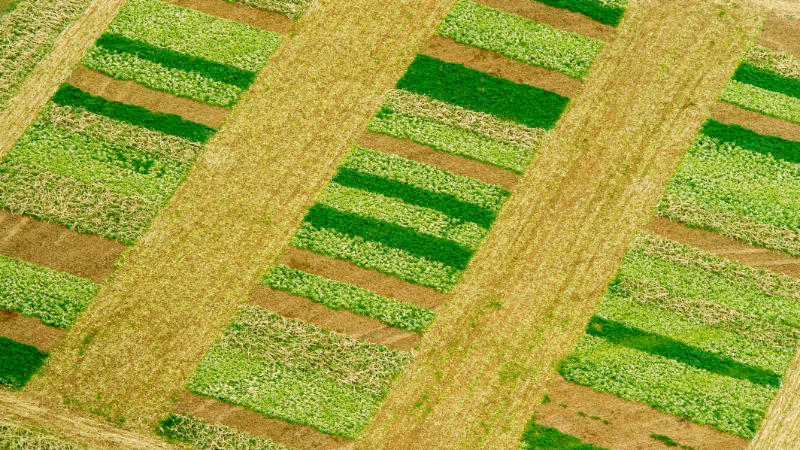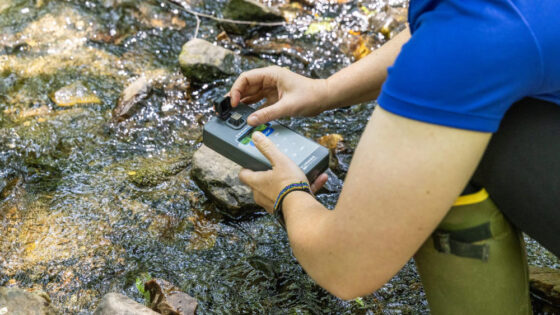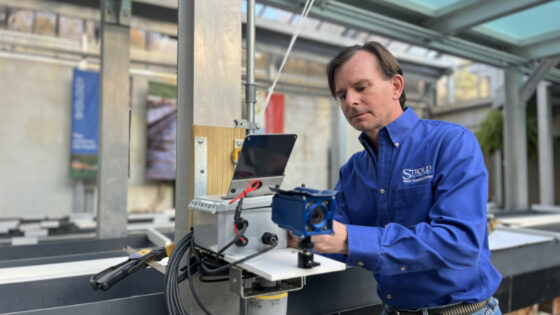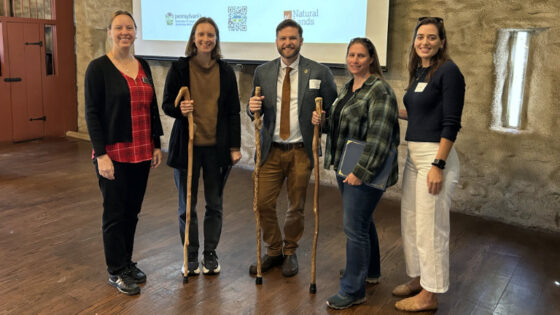Stroud Water Research Center in partnership with Amazon Web Services (AWS) is leading a three-year project to enhance water in communities in northern Virginia.
Using a science-based approach that prioritizes ecosystem health in the restoration of streams, rivers, and their watersheds, the Stroud Center will work with farmers and agricultural landowners in the Bull Run and Broad Run watersheds to improve cropland management by implementing soil health practices, including 2,300 acres of no-till planting and 2,300 acres of cover crop systems. The project is expected to return more than 254 million liters of clean water, or about 67 million gallons, to recharge groundwater resources each year.

Support for the project is part of AWS’s commitment to return more water to communities than it uses by 2030, which will be partially met through projects that conserve and replenish water resources. These types of water conservation and replenishment projects are completed with help from public and nonprofit partners like the Stroud Center. While this is the first AWS project announced in northern Virginia, similar AWS projects announced worldwide represent 3.9 billion liters of water being returned to local communities each year.
Stroud Center Director of Watershed Restoration Matthew Ehrhart said, “Stroud Water Research Center has a more than 50-year history of pioneering research on streams and rivers around the world. In the last decade, we’ve integrated our science into projects to restore these valuable but often degraded ecosystems, simultaneously helping farmers enhance their operations. With funding from AWS, we are expanding the reach of these stream-friendly projects, increasing groundwater recharge, and delivering better-protected water resources to more people.”
Water Sustainability Lead for Amazon Will Hewes said, “At Amazon we are passionate about making a positive impact in our communities. Support for this project is part of our effort to be water positive by 2030. We’re particularly excited to support water sustainability in the Chesapeake Bay region, where Amazon has built its second headquarters and many of our employees live and work.”
By targeting large tracts of land around headwater streams, the Stroud Center and AWS will maximize the positive impact on water resources. As the upstream waters travel through the lower watersheds, urban downstream communities in and around Washington, D.C., will benefit, too.
Funding from additional partners will support the planting and maintenance of streamside forests using methods that Stroud Center scientists and watershed restoration professionals have shown can significantly increase the survival of young, newly installed trees. These measures are expected to increase infiltration and groundwater recharge while also reducing stormwater runoff, flooding, water inefficiency, and water pollution from sediment and nutrients.
The water quality improvements will also help achieve the pollution reduction goals of the Chesapeake Bay Watershed Agreement, written agreements that guide the restoration of the United States’ largest estuary and its watershed.
In addition to support for water replenishment projects to help meet AWS’s commitment to be water positive by 2030, AWS uses recycled wastewater at several of its data centers instead of drinking water, including 16 data centers in Virginia, making more, higher quality water available for the community.
Contacts:
- Jennifer Merrill, Director of Marketing and Communications
- Diane Huskinson, Associate Director of Communications



